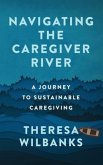Navigating relationships with difficult individuals can often feel like walking through a minefield. I've had my fair share of experiences with people who seem to thrive on chaos or negativity, and I've learned a lot about how to maintain my own peace while dealing with them. It's a journey that requires patience, self-awareness, and sometimes a good dose of humor. First, let's talk about recognizing toxicity. It can be subtle at first. A friend who constantly critiques your choices or a family member who seems to drain your energy can be easy to overlook. In my experience, I noticed that whenever I spent time with certain people, I felt emotionally exhausted afterward. It was like they were siphoning off my joy. That's your first clue: pay attention to how you feel after interacting with someone. Once you've identified these difficult individuals, it's crucial to set boundaries. I remember a time when I had a colleague who would frequently interrupt me during meetings, dismissing my ideas and dominating the conversation. It took some courage, but I finally spoke up. I told him that I valued collaboration and that everyone's input was important. To my surprise, he backed off a bit. Setting boundaries can be uncomfortable, but it's necessary for your well-being. Communication is another key aspect. It's essential to express your feelings honestly but respectfully. I once had a friend who would make snide remarks about my life choices. Instead of retaliating, I decided to have a heart-to-heart conversation. I shared how her comments affected me, and to my relief, she wasn't aware of the impact of her words. This open dialogue not only improved our friendship but also helped her become more mindful. Sometimes, despite our best efforts, relationships remain toxic. In those cases, it's okay to distance yourself. I had to let go of a friendship that was more draining than uplifting. It was tough, but prioritizing my mental health was worth it. I learned that it's okay to walk away from relationships that don't serve you. Self-care is vital in this process. Engaging in activities that bring you joy and relaxation can help you recharge. Whether it's taking a walk in nature, practicing yoga, or simply curling up with a good book, find what works for you. I've found that journaling is particularly therapeutic. Writing down my thoughts helps me process my feelings and gain clarity. Lastly, remember that you are not alone. Many people face similar challenges in their relationships. Seeking support from friends, family, or even a therapist can provide valuable insights and coping strategies. Sharing experiences with others can be incredibly validating. In conclusion, navigating relationships with difficult individuals is a complex but manageable endeavor. By recognizing toxicity, setting boundaries, communicating openly, and prioritizing self-care, you can reclaim your power. Remember, it's a journey, and it's okay to take it one step at a time. Embrace the process, and you'll find that you can thrive even in challenging circumstances.
Bitte wählen Sie Ihr Anliegen aus.
Rechnungen
Retourenschein anfordern
Bestellstatus
Storno








